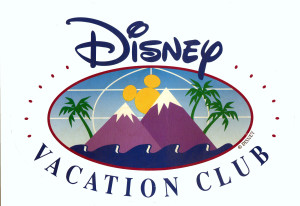How OTAs have Changed Vacation Accommodations, The Gnome Has a Message for You
Thursday, February 21, 2013

The following article appears in the February 2013 edition of The Resort Trades. You can read the article below, in print, or on the magazine’s website.
This article is republished here with permission of The Resort Trades, a trusted resource since 1986 in the vacation ownership, timeshare, and shared ownership industry and by all who support the industry. The Resort Trades offers display and classified advertising, as well as Trade Member listings, monthly industry news and press releases, global analysis articles, and in-depth interviews with industry professionals and business leaders.
The Gnome Has a Message for You
How OTAs have Changed Vacation Accommodations
Today’s message in vacation accommodations is value. If you doubt it, just ask a gnome, perhaps one paddling by in a kayak.
Expedia, Orbitz, Priceline, Travelocity, Kayak … there’s a long list of players in online travel and although there are distinctions in their services, in general, they all offer some form of travel product search and booking. Their services are fast, available to anyone with Internet access, and empower vacationers and travelers with the sense that they are in control of their accommodations from the room view to the amenities to the price they pay.
Online travel agencies, known as OTAs, have succeeded in not only changing how consumers book vacation accommodations, but have dramatically changed what consumers look for and expect in the booking process. Where once the question asked by a traveler was, “Do you have accommodations?” today the query is, “What’s the best value available?”
The average vacationer visits between three and four OTA sites before making his or her travel decisions. Although the information gleaned from each different website typically varies little in content or price from one site to the next, checking multiple sites is an important part of the user experience – a part the OTAs recognize and indirectly even encourage.
Despite the fact that the OTAs are in competition with one another, they realize that their message of, “low price, low price, low price,” only works if consumers feel they have the latitude to verify the accuracy of this message. Expedia doesn’t mind if you go to Travelocity or Orbitz and run the same search; they know that for most consumers the concern is less about the price they pay and more about fairness. Are they overpaying for something that could be had at a lower price? Searching multiple OTA sites and comparing rates reaffirms for the consumer that he or she is booking his travel at a competitive price and enhances the OTA website experience.
Orbitz tells its website visitors it has travel packages that, “save you moolah,” and that its hotels are, “on sale.” The first search option that Travelocity offers website visitors is one labeled, “Save,” while Expedia highlights its, “Best Price Guarantee.” Online travel agencies know that if they aren’t offering you a cheaper room rate or the capability to bundle your airfare and your hotel room and save, then you have no reason to be their client. With this in mind, they invest billions of advertising dollars reminding the travel marketplace that they offer the lowest price, in the process, implying that hotels, airlines, travel agents, and other traditional resources are overcharging or marking up rates in ways that savvy consumers can avoid.
OTAs not only don’t mind you searching their competitors, in some cases, they don’t even mind you buying from them. Priceline, for example, purchased Kayak in November of 2012, although it continues to operate Kayak as a stand-alone brand. Travelocity is actually a sister site to lastminute.com in Europe and Zuji in Asia, and owns the brands World Choice Travel; IgoUgo, an online travel community and travel-planning resource; and AllHotels, an online hotel reservation site. Orbitz’ brands include CheapTickets, the Away Network in North and South America; ebookers in Europe; and HotelClub and RatestoGo, based in Sydney, Australia, while Hotels.com and Hotwire belong to Expedia.
Everybody wants in on the act
In the U.S., the Internet is the leading source for travel planning information. According to the Traveler’s Road to Decision 2011, a study by thinktravel, Google and other sources, last year, 85 percent of U.S. personal travelers and 78 percent of business travelers used the Internet as their primary travel planning resource.
Where once OTAs were considered a way to augment hotel bookings, many hoteliers are now feeling as if online travel resources are actually cannibalizing their bookings. OTA bookings are growing at a faster rate than traditional hotel bookings are growing, in part because of the aggressive ways OTAs use Google adwords and paid search, bidding on variations of a hotel’s name and keywords. Unhampered by the costs of operating and maintaining resorts, OTAs can dedicate entire marketing budgets to convincing consumers to book online through their company; they can come between a resort and its client so effectively that the vacationer may never even view the resort brand’s website.
In 2012, the U.S. travel industry spent $2.98 billion on digital advertising, a number that is expected to roughly double within the next five years. This is more spending for online advertising, increasing at a faster rate, than online advertising for any other category of goods and services. In an attempt to counterbalance the shrinking margins that have resulted from the success of OTAs, hotels and resorts are looking to different strategies, recognizing that they don’t want to get into adword bidding wars with the OTAs.
Launched in early 2012, Room Key (www.roomkey.com) is intended to help branded hospitality providers regain some of the competitive positioning they’ve lost to the OTAs. As a collaborative venture founded by Choice Hotels International, Hilton Worldwide, Hyatt Hotels, InterContinental Hotels, Marriott International and Wyndham Hotel Group, Room Key offers a clean, simple interface for searching for hotel rooms – or for timeshares.
Ironically, although your search results may yield rentable timeshare units in the mix, and some properties are actually identified as timeshares in their descriptions, you can’t enter the word “timeshare” into your search criteria. Nor can you book a flight, a rental car, or any other component of your trip other than your accommodations when you are using Room Key, a problem some critics speculate will be Room Key’s downfall.
Another approach that may help level the playing field lies in social media. According to research by MDG Advertising, 52 percent of travelers use Facebook for summer vacation inspiration. After their trip is booked, 59 percent of travelers post at least one status update about their upcoming vacation and over 75 percent of travelers share vacation photos through social media. From Facebook to LinkedIn, Twitter, Google , and other growing platforms, social media offers a key relationship building tool for resorts with their clients and prospective clients.
Lastly, no one represents a resort brand better than does the brand itself. No OTA can ever be as accurate, as current, or as personable as your resort can be in representing itself; all an OTA ever has to offer is price. Whether the issue is resort bookings, timeshare sales, timeshare resales, or resort rentals, market value pricing that consumers believe they can trust is always the most powerful playing card anyone in the industry can ever hold.



